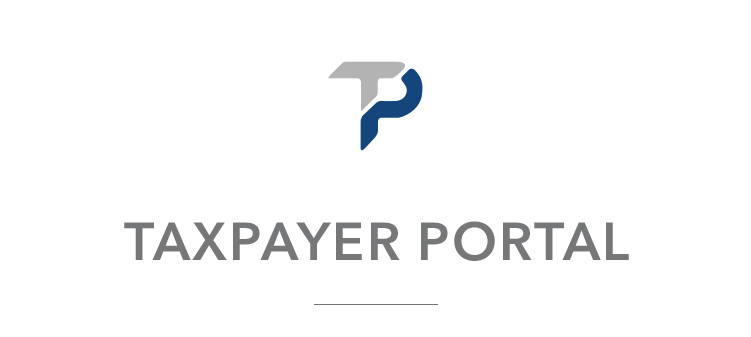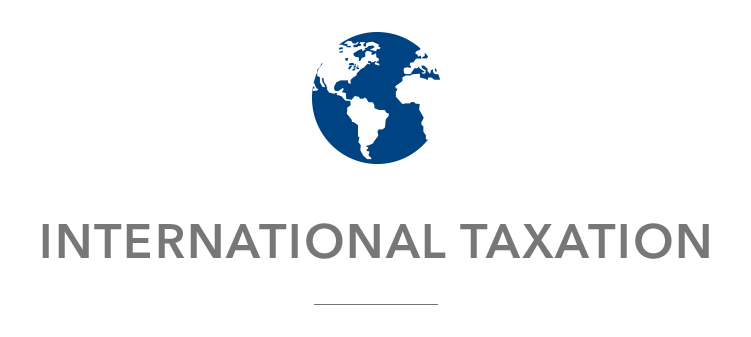FAQs for PAYE Employee
- What is PAYE?
- Who is an employee?
- Are all employees subject to PAYE?
- What are emoluments?
- What are fringe benefits?
- Are all emoluments taxable?
- How does PAYE operate?
- What happens if I receive payment of an arrears of salary?
- How does my employer know the deductions to which I am entitled?
- What happens if I do not furnish an EDF?
- What should I do if there is a change in my deductions during the year?
- What if I am employed for the first time?
- What if I take up a new employment?
- What if I have more than one employer at any one time?
- Should I submit an income tax return at the end of the income year?
- How will I know my emoluments and PAYE deductions for the year?
- How to obtain additional information on PAYE?
-
What is PAYE?
PAYE is a system whereby employers are required to deduct tax from the emoluments of their employees and to pay over the tax withheld to the Mauritius Revenue Authority every month.
-
A person who receives or is entitled to receive emoluments is an employee. Since emoluments include pension in relation to past employment, a person in receipt of such pension is treated as an employee.
-
Are all employees subject to PAYE?
No. An exempt person is not subject to PAYE. An exempt person means an employee whose emoluments do not exceed Rs 30,000 per month.
-
Emoluments mean any advantage in money or in money's worth which is salary, wages, leave pay, fee, overtime pay, perquisite, allowance, bonus, gratuity, commission or other reward or remuneration in respect of or in relation to the office or employment of an individual and includes fringe benefits.
Emoluments also include superannuation, pension, retiring allowance, compensation for loss of office or other reward in respect of or in relation to a past employment or loss or reduction of future income. -
A fringe benefit is any advantage in money's worth provided by an employer to an employee. It forms part of emoluments and is subject to PAYE.
Fringe benefits include housing benefit, car benefit, tax benefit, interest free loan benefits, free meals to employees, full board and lodging to expatriates, personal expenses of the employee which are borne by his employer and any other advantage in money's worth.The tax on the emoluments of an employee which is borne by his employer constitutes an advantage to the employee and is referred to as tax benefit.
-
All emoluments are taxable except the following:
-
Emoluments derived from the office of the President or Vice-President.
-
Any rent allowance payable to a person appointed to an office in :
-
the Police Force;
-
the Fire Services;
-
the Forests Division of the Ministry of Agriculture and Natural Resources;
-
the Prisons and Industrial School Service; the Ministry of Fisheries;
-
the Department of Civil Aviation;
-
the Fire Unit of the Mauritius Marine Authority.
-
-
Any housing allowance not exceeding Rs 100 per month payable by an employer to an employee under any enactment or by virtue of an award made under an enactment.
-
Any transport allowance payable by an employer to an employee by virtue of the terms and conditions of service equivalent to :
-
the return bus fare between residence and place of work;
-
petrol allowance, commuted travelling allowance and travel grant payable by the Government of Mauritius and the local authority to their employees; or
-
the actual petrol or travelling allowance paid or 25% of the monthly basic salary up to a maximum of Rs 20,000, whichever is the lesser, provided that the employee makes use of a private car registered in his own name for attending duty and for the performance of the duties of his office or employment.
-
-
Passage benefits provided under a contract of employment not exceeding 6% of the basic salary.
-
The first Rs 2.5 million of the aggregate amount received:
-
as lump sum by way of commutation of pension or by way of death gratuity or as consolidated compensation for death or injury, and paid :
-
by virtue of any enactment;
-
from a superannuation fund;
-
under a personal pension scheme approved by the Director-General;
-
-
as lump sum under the National Savings Fund Act;
-
by way of retiring allowance;
-
by way of severance allowance determined in accordance with the Labour Act, on such conditions as may be prescribed.
-
as compensation negotiated under section 70 (1)(i) and (ii) of Workers Rights Act.
-
-
Any payment of foreign service allowance, reimbursement of the cost or payment of personal and private expenses including medical expenses, to homebased staff of overseas mission.
-
Any advantage in money or in money's worth received as lump sum by an employee voluntarily terminating his contract of employment in the context of a factory closure pursuant to the Cane Planters and Millers Arbitration and Control Board Act or under the Voluntary Retirement Scheme under the Sugar Industry Efficiency Act 2001.
-
Any benefit to an employee for a payment by his employer to provide a pension or retiring allowance for the employee or his dependents and which is an allowable deduction under Section 22 or 61, as the case may be.
-
Any benefit to an employee for a payment by his employer to a scheme approved by the Director-General to provide against medical expenses for the employee or his dependents and which is an allowable deduction under Section 22 or 61, as the case may be.
-
Emoluments of a non-citizen who holds office in Mauritius as an official of a Government other than the Government of Mauritius and is posted to Mauritius for that purpose.
-
Any foreign service allowance payable under a contract of employment to staff of statutory bodies posted abroad, as may be approved by the Director-General.
-
Any car allowance payable in lieu of duty exemption on a car, to a public officer, an officer of a local authority, or officer of a statutory body, whose terms and conditions of service are governed by the 2013 Report of the Pay Research Bureau
-
Salaries and emoluments derived by an employee who is a citizen of Mauritius or who holds a permanent residence permit under the Immigration Act from his employment with the Liaison Office located in Mauritius, of the Bank referred to in the International Financial Organisations Act.
-
Emoluments derived by a seafarer from his employment on a vessel registered in Mauritius or on a foreign vessel.
-
Emoluments derived by an employee from his employment with a corporation licensed by the Financial Services Commission established under the Financial Services Act, provided that the employee manages an asset base of not less than USD 50 million and is issued with:
(a) an Asset Manager Certificate;
(b) a Fund Manager Certificate; or
(c) an Asset and Fund Manager Certificate,
on or after 1 September 2016, by the Financial Services Commission established under the Financial Services Act.
-
The exemption shall be for a period of 10 income years as from the income year in which the employee was granted the certificate referred to in paragraph (1).
-
An allowance not exceeding 15,000 rupees payable to an officer or employee who has been required to work on the frontline during the COVID-19 period where such allowance
-
is payable by the Government; or
-
is financed by the COVID-19 Solidarity Fund.
-
-
Any monthly allowance paid by an employer to an employee equivalent to the amount payable by the employee as social contribution under section 3 of the Social Contribution and Social Benefits Act 2021.
-
-
The PAYE system operates on the pay for the current period at the time the emoluments are received or made available to the employee. Employers are thus required to withhold tax at the appropriate rates applicable on the income brackets; as shown in the table below, from the monthly emoluments of employees and remit same to the MRA either electronically or through a computer system approved by the Director General.
Annual Chargeable Income
Rate of Income tax
Annual Chargeable Income
Rate of Income tax
First Rs 390,000
0%
Next Rs 300,000
12%
Next Rs 40,000
2%
Next Rs 300,000
14%
Next Rs 40,000
4%
Next Rs 400,000
16%
Next Rs 60,000
6%
Next Rs 500,000
18%
Next Rs 60,000
8%
On the remainder
20%
Next Rs 300,000
10%
-
What happens if I receive payment of an arrears of salary?
Where arrears of emoluments earned in an income year are received by a person in the following or any subsequent income year, those emoluments are deemed to have been earned in the income year in which they are received and are subject to PAYE in the pay period in which they are paid.
-
How does my employer know the deductions to which I am entitled?
An employee who is affected by PAYE and wish to entitle for reliefs, deductions and allowances for an income year (1st July to 30th June) to be taken into account for the purpose of calculating the amount of tax, if any, to be withheld from his emoluments. should submit an Employee Declaration Form (EDF) to his employer. The EDF can be either downloaded or submitted electronically from the MRA website.
An EDF should be submitted at the beginning of every income year so as to avoid unnecessary withholding of tax.
-
What happens if I do not furnish an EDF?
If you are not an exempt employee, tax will be withheld at the rate of 15% or at the option of the employee, withhold tax at the rate of 20% of those emoluments where emoluments for the month exceed Rs 30,000. Please note that an EDF may be filled at any time during an income year. Your employer will take into account your reliefs, deductions and allowances in calculating the amount of tax to be withheld in the future pay periods in that income year.
-
What should I do if there is a change in my deductions during the year?
As an employee you should ensure that the amount claimed as total reliefs, deductions and allowances in your EDF is correct. Where during an income year, there is a change in the total reliefs, deductions and allowances to which you are entitled, you may at any time in that income year furnish a fresh E-EDF or alternatively print a downloadable EDF and submit same to your employer claiming the revised amount of the reliefs, deductions and allowances. Your tax liability for the remaining pay periods will be adjusted accordingly.
-
What if I am employed for the first time?
Where you take up employment for the first time, you should, unless you are an exempt person, furnish to your employer an EDF duly filled in.
-
What if I take up a new employment?
You should, unless you are an exempt person, furnish a declaration to your new employer.
-
What if I have more than one employer at any one time?
You should furnish an EDF to ONLY one of your employers. Except if you are an exempt employee, the other employers will withhold tax from your emoluments at the rate of 15% or 20% as may be stated by the employee in his request.
-
Should I submit an income tax return at the end of the income year?
Tax deductions under PAYE are provisional payments of tax. A return should be filled in after the end of an income year to ascertain the final tax liability for that year. A return should be submitted to the MRA in case you:
(a) have an additional tax liability for the year,
(b) are entitled to a refund of the tax paid in excess.
-
How will I know my emoluments and PAYE deductions for the year?
Every employer is required by law to give not later than 15th August following an income year, to each employee employed by him during that income year, a Statement of Emoluments and Tax Deduction.
You should insert details of the Statement of Emoluments and Tax Deduction while filling your return.
-
How to obtain additional information on PAYE?
Contact MRA Help Desk on 207 6000 or email us on This email address is being protected from spambots. You need JavaScript enabled to view it. .
FAQs : Advance Payment System (APS)
- What is Advance Payment System (APS)?
APS is a system whereby every company is required to file quarterly APS Statements and to pay tax, if any, in accordance thereof.
- Who is liable to APS?
APS is applicable to companies, unit trust schemes, collective investment schemes, cells of a protected cell company, trusts (other than trusts having made a declaration of non-residence), non-resident societies and any société holding a Global Business Licence under the Financial Services Act 2007 which has opted to be liable to income tax.
- What is the obligation to file APS Statement?
An APS statement should be submitted to the Director-General by every company where, in respect of the preceding accounting year, the company’s gross income exceeded 10 million rupees and it had a chargeable income.
- What is an APS Quarter?
The APS quarter of a company depends on its accounting year and is given in the table below:
Quarter Income for period
APS Quarter Income For Period First 3 months commencing on the first day of the accounting year Second 3 months immediately following the end of the first quarter Third 3 months immediately following the end of the second quarter Where a company's accounting year ends in June and is required to submit an APS statement for the third quarter (i.e a company having a turnover exceeding 10 million rupees and a chargeable income for the preceding year), it may opt to submit an APS statement in respect of the fourth quarter and thereby benefit from an extended delay to file its annual income tax return by end of January of the following year. In that case the APS Statement for the fourth quarter shall cover income for a period of 3 months immediately following the end of the third quarter.
- What is the due date for the submission of APS Statement and payment of tax?
The APS Statement and payment of tax, if any, should reach MRA within 3 months from the end of the month in which the APS quarter ends.
However,
- where the APS quarter ends in March, the due date for submission of the APS Statement and payment of tax for that quarter shall be 2 days, excluding Saturdays and public holidays, before the end of June;
- where the APS quarter ends in September, the due date for submission of the APS Statement and payment of tax for that quarter shall be 2 days, excluding Saturdays and public holidays, before the end of December;
- where a company's accounting year ends in June and it has submitted APS Statements for the third and fourth quarters of an accounting year, the due date for submission of an APS Statement and payment of tax for the first quarter of the succeeding accounting year shall be 31 January following the end of that quarter.
- How to calculate the chargeable income of an APS Quarter?
The chargeable income of a company in respect of an APS quarter may, at the option of the company, be computed in accordance with either Method A or Method B:
Method A: The chargeable income is deemed to be 25% of the chargeable income of the company for the accounting year ending on the date immediately preceding the commencement of that quarter.
Method B: The chargeable income is the difference between the gross income and the allowable deductions for that quarter including any loss brought forward from the previous quarter of the accounting year immediately preceding that quarter. Where the company opts for Method B and the calculated value is negative, the value should be entered as zero. The company will then deduct that loss in the APS Statement of the next quarter of the accounting year.
- How is Tax Calculated for an APS Quarter?
The income tax payable in respect of an APS Quarter is calculated, at the option of the company, at the rate of 15% on the chargeable income or 3% on chargeable income attributable to export arrived at under either Method A or Method B.
The amount of TDS to which the company has been subject in respect of payments received during the current quarter should be deducted from the tax payable for that quarter.
- Should a company having paid tax under APS file its Annual Return?
Tax paid under APS is a provisional payment. Any company having paid tax under APS should file its annual return and pay any tax payable in accordance with the return, after deducting any tax already paid under APS or withheld under the Tax Deduction at Source.
- Is there any penalty for late payment of tax under APS?
Yes, in case of late payment of tax under APS, a penalty of 5% and interest at the rate of 0.5% per month or part of the month during which the tax remains unpaid will become due.
Objections, Appeals & Dispute Resolutions Department
Objections
If you are dissatisfied with an assessment/ additional assessment/ a revision of loss/ a claim, you may object to the assessment/ additional assessment/ revision of loss/ claim within 28 days of the date of the notice of assessment/ notice of revision of loss/ notice of claim.
The Objections, Appeals & Dispute Resolutions Department will deal with your objection and being an independent directorate, all objections will be dealt with independently, objectively, fairly and in a transparent manner.
A notice of determination of objection will be issued within 4 months of the date on which the objection is lodged.
For more information you may consult our objection guidelines.
Appeal
In case you are aggrieved by the determination, you may not later than 28 days from the date of the notice of determination, lodge written representations in accordance with the provisions of law, with the Clerk, Assessment Review Committee.
Objections & Appeals
Frequently Asked Questions on Tax Deduction at Source (TDS)
-
-
What is Tax Deduction at Source?
Under the system of Tax Deduction at Source (TDS), the payer is required to deduct tax at the time the payment is received by or credited to the account of the payee. This is similar to the PAYE system whereby tax is deducted by employer at the time emoluments are made available to the employee.
-
Which types of payments would be subject to Tax Deduction at Source?
Following types of payments would be subject to Tax Deduction at Source:
-
Interest
-
Royalties
-
Rent
-
Payments to contractors and sub-contractors
-
Any sum paid to accountant / accounting firm, architects, attorney / solicitor, barrister, engineers, interior decorator / designer, land surveyors, legal consultant, medical service provider, project managers in construction industry, property valuers, quantity surveyors and tax adviser or his representative as consideration for services rendered by them;
-
Payment made on contracts by Ministry, Government department, local authority, statutory body or the Rodrigues Regional Assembly;
-
Payment made to owner of an immovable property or his agent pursuant to section 111B(g);
-
Payment made to a non-resident for any services rendered in Mauritius pursuant to section 111B(h);
-
Management fees payable to an individual by any person , other than an individual;
-
Payments in money or money's worth or transfers made by a person in connection with activities performed in Mauritius by a non-resident entertainer or sportsperson;
-
Commissions payable by any person, other than an individual;
-
Payments to consultants by any person, other than an individual;
-
Payments to a provider of security services, cleaning services, pest management services and other ancillary services by any person, other than an individual; and
-
Payments by insurance companies to motor surveyors and any other person for repairs of motor vehicles of policy holders.
-
-
What is the rate of Tax Deduction at Source?
The rate of Tax Deduction at Source for different types of payments is:
Amount or sum made available to the payee by way of - Rate of tax (%) 1. Interest payable by any person, other than by a bank or non bank deposit taking institution, under the Banking Act, to any person, other than a company resident in Mauritius
15 2. Royalties payable to
(a) a resident
(b) a non-resident
10
15
3. Rent payable to
(a) a resident
(b) a non-resident
7.5
10
4. Payment to contractors and sub-contractors
0.75 5. Payment to providers of services as specified in the Fifth Schedule to the Income Tax Act
5 6. Payment made by Ministry, Government department, local authority, statutory body or the Rodrigues Regional Assembly on contracts, other than payments to contractors and subcontractors and payments to providers of services specified in the Fifth Schedule
a. for the procurement of goods and services under a single contract, where the payment exceeds 300,000 rupees;
1 b. for the procurement of goods under a contract, where the payment exceeds 100,000 rupees; or
1 c. for the procurement of services under a contract, other than telephone, postal, air travel and hotel services, where the payment exceeds 30,000 rupees
3 7. Payment made to the owner of an immovable property or his agent pursuant to section 111B(g)
5 8. Payment made to a non-resident for any services rendered in Mauritius pursuant to section 111B(h)
10 9. Payment of management fees pursuant to section 111B(i) to –
(a) a resident
(b) a non-resident
5
10
10. Payments to a non-resident entertainer or sportsperson pursuant to section 111B(j)
10 11. Commission
3 12. Payment to consultants pursuant to section 111B(l)
3 13. Payment made to a provider of security services, cleaning services or pest management services and other ancillary services pursuant to section 111B(m)
3 14. Payment made by insurance companies to motor surveyors and any other person pursuant to section 111B(n)
3 - Is there a minimum threshold for deducting tax at source?
No amount shall be deducted when the amount of tax to be deducted is less than Rs 500.
- When will the tax be deducted at source?
The tax is required to be deducted at source by the payer when the amount is paid to, or credited to the account of the payee whichever is earlier.
- When and how will the tax deducted at source be remitted?
The returns are made electronically not later than one month from the end of the month in which the income tax was deducted; or in the case where remittance and the return are made in a manner other than electronically, not later than 20 days from the end of the month in which the income tax was deducted. The remittance and the return shall in respect of the months of May and November, be 2 days excluding Saturdays and public holidays, before the end of June and December, respectively.
- Is Tax Deduction at Source a final payment of tax?
Deduction of tax at source is an advance payment of taxes and would thus be offset against the income tax liability of the payee.
- How will the payee know about tax deducted at source from his income?
The payer shall issue a statement of income tax deduction in respect of the preceding income year, to the payee by 15th August every year showing the total payment made to the payee and the tax deducted there from. This statement has been prescribed in Income Tax Regulations.
- Is the payer required to furnish a statement to the MRA?
The payer is required to furnish an annual statement electronically in respect of the preceding income year, not later than 15 August in every year, giving particulars of the payee, the amount or sum made available and the income tax deducted there from. See Annexure 1
Where no income tax has been deducted a statement giving particulars of the payee and the amount or sum made available, shall be submitted.
- When is a payer not required to deduct tax at source?
If a payee proves to the satisfaction of the Director General that he is not chargeable to income tax for a particular year, the Director General, may direct the payer in writing that no tax shall be deducted from payments made to the payee for that year.
- If there are a number of liabilities of the payee, which payment has to be deducted first of all?
The obligation of the payer to deduct tax at source prevails over any right or obligation to deduct any other amount from such payments. In other words, tax to be deducted at source ranks first among deductions from payments made to the payee.
- Is the payer required to pay the tax which he failed to deduct at source ? Can he recover this amount from the payee subsequently?
Yes. If the payer fails to deduct tax at source in accordance with the provisions of the Income Tax Act, he shall be personally liable to pay the said tax to the MRA. However, he is still entitled to recover from the payee, the tax which he failed to deduct.
- Is there any penalty for late payment of tax deducted at source?
Yes. If the payer fails to pay in time, the tax required to be deducted at source, he shall be personally liable to pay, in addition to tax, a penalty equal to 10% of the amount of tax remaining unpaid.
- Is there any interest on unpaid tax?
Yes. If a person fails to pay any tax required to be deducted at source he shall be liable to pay interest at the rate of 1%( of tax remaining unpaid) per month or part of the month during which the tax remains unpaid
-
-
- What type of interest payments are subject to Tax Deduction at Source?
The interest payments subject to Tax Deduction at Source include the following:
-
bank interest;
-
interest on deposits issued by non banking institutions;
-
interest on debentures or any other loan instrument;
-
interest on treasury bills and other loan instruments issued by the Bank of Mauritius.
-
- Who should deduct tax at source?
The following persons should deduct tax at source:
-
Any bank including the Bank of Mauritius;
-
Any non-bank deposit taking institution;
-
Any person issuing debentures or any other loan instrument.
-
- Whether any individual paying interest should deduct tax at source?
No. An individual paying interest is not required to deduct tax at source.
- Which payees are subject to Tax Deduction at Source?
Payees subject to Tax Deduction at Source are:
-
individuals including minors and joint account holders with other individuals;
-
sociétés or successions.
-
- Is a company receiving interest subject to Tax Deduction at Source?
No. A company receiving interest is not subject to Tax Deduction at Source.
- Which other types of persons receiving interest are not subject to Tax Deduction at Source on interest?
The other types of persons receiving interest who are not subject to Tax Deduction at Source are:
-
A non resident individual;
-
A non-resident societe;
-
A societe holding a Global Business licence;
-
A societe exempt from the payment of Income Tax.
-
- What is the rate of Tax Deduction at Source?
The rate of Tax Deduction at Source is 15%.
- What type of interest payments are subject to Tax Deduction at Source?
-
PAYMENTS TO CONTRACTORS AND SUB-CONTRACTORS
- Which contracts are subject to Tax Deduction at Source?
Contracts related to civil construction or repair of any building, road or other structure and supply of labour to conduct civil construction are subject to Tax deduction at Source.
-
Who should deduct tax at source?
All persons excluding individuals who are making payments to contractors/sub-contractors should deduct tax at source.
- Which payees are subject to Tax Deduction at Source?
Payees subject to Tax Deduction at Source are contractors and sub-contractors engaged in carrying out civil construction or repair of any building, road or other structure or execution of any works contract and include mechanical or electrical works and include any supply of labour for carrying out works in respect of civil construction.
- What does a contractor mean?
A contractor means any person who enters into a contract for carrying out any work.
- What does a sub-contractor mean?
A sub-contractor means any person who enters into a contract with a contractor for carrying out any work.
- What is the rate of Tax Deduction at Source?
The rate of Tax Deduction at Source is 0.75%.
- Is there a minimum threshold for Tax Deduction at Source?
Yes , Rs 500.
- Which contracts are subject to Tax Deduction at Source?
-
ROYALTIES
- What does royalty mean?
Royalty means payment for artistic or literary work.
- Who should deduct tax at source?
Companies and Société other than individual and companies holding a Global Business Licence should deduct tax at source on royalty payments.
- Which payees are subject to Tax Deduction at Source?
All persons receiving royalties are subject to Tax Deduction at Source.
- What is the rate of Tax Deduction at Source?
The rate of Tax Deduction at Source is 10% for a resident and 15% for a non-resident respectively.
- Is there a minimum threshold for Tax Deduction at Source?
Yes , Rs 500.
- What does royalty mean?
-
PAYMENTS FOR SPECIFIED SERVICES
- Which services would be subject to Tax Deduction at Source?
Services provided by accountants / accounting firms, architects, attorneys / solicitors, barristers, engineers, interior decorator / designer, land surveyors, medical service providers, project managers in construction industry, property valuers, quantity surveyors and tax advisers or their representatives would be subject to Tax Deduction at Source.
- Who should deduct tax at source?
All persons other than individual should deduct tax at source.
- Which payees are subject to Tax Deduction at Source?
Payees subject to Tax Deduction at Source are accountants / accounting firms, architects, engineers, interior decorator / designer, land surveyors, medical service providers, attorneys / solicitors, project managers in construction industry, property valuers, barristers, legal consultant, quantity surveyors and tax adviser or his representative.
- What is the rate of Tax Deduction at Source?
The rate of Tax Deduction at Source is 5%.
- Is there a minimum threshold for Tax Deduction at Source?
Yes , Rs 500.
- Which services would be subject to Tax Deduction at Source?
-
- What is rent?
Rent means any payment, by whatever named called, under any lease, sub-lease, tenancy or any other agreement or arrangement for the use of any land or building together with furniture, fittings and the land appurtenant thereto, whether or not such building is owned by the payee and also includes any premium or other consideration for a lease.
- Who should deduct tax at source?
All persons other than individual should deduct tax at source.
- Which payees are subject to Tax Deduction at Source?
All persons except a body of persons exempt from the payment of Income Tax would be subject to Tax Deduction at Source.
- What is the rate of Tax Deduction at Source?
The rate of Tax Deduction at Source on rent is as follows:
-
7.5% for resident; and
-
10% for non-resident
-
- Is there a minimum threshold for Tax Deduction at Source on rent?
Yes , Rs 500.
- What is rent?
-
PAYMENTS TO OWNER OF AN IMMOVEABLE PROPERTY OR AGENT
-
Which payments are subject to Tax Deduction at Source?
Rental or other consideration for board and lodging made to the owner of an immovable property or his agent, other than a hotel.
-
Who should deduct tax at source?
-
Tour operators or travel agents, other than an individual
-
An IRS Company or RES Company or a provider of property management services
-
Any other agent, other than individual, carrying on the business of providing services in respect of letting of properties.
-
-
Which payees are subject to Tax Deduction at Source?
All persons except a body of persons exempt from the payment of Income Tax would be subject to Tax Deduction at Source.
-
What is the rate of Tax Deduction at Source?
The rate of Tax Deduction at Source is 5%.
-
Is there a minimum threshold for Tax Deduction at Source?
Yes, Rs 500
-
-
PAYMENTS ON CONTRACTS FOR PROCUREMENT OF GOODS & SERVICES
- Which contracts are subject to Tax Deduction at Source?
Contracts for procurement of goods and/or services are subject to Tax Deduction at Source.
- Who should deduct Tax Deduction at Source?
Ministries, Government departments, local Authorities, statutory bodies and Rodrigues Regional Assembly.
- Which payees are subject to Tax Deduction at Source?
All persons except a body of persons exempt from the payment of Income Tax would be subject to Tax Deduction at Source.
- What is the rate of Tax Deduction at Source?
The rate of Tax Deduction at Source varies as per Sixth Schedule.
- Is there minimum threshold?
Yes, Rs 500
- Which contracts are subject to Tax Deduction at Source?
-
- What is commission?
Commission includes any sum paid or payable to agent in relation to a commercial transaction.
- Who should deduct tax at source?
All persons other than individual should deduct tax at source.
- Which payees are subject to Tax Deduction at Source?
All persons except a body of persons exempt from the payment of income tax would be subject to Tax Deduction at Source.
- What is the rate of Tax Deduction at Source?
The rate of Tax Deduction at Source is 3%.
- Is there a minimum threshold for Tax Deduction at Source?
Yes , Rs 500.
- What is commission?
-
- Who is a consultant?
A Consultant means any person who provides advisory and counselling services.
- Which payments would not be subject to Tax Deduction at Source under this item?
-
Services as specified in the Fifth Schedule to the Income Tax Act;
-
Payments made to a company holding a management licence issued by the Financial Services Commission;
-
Payments made to an investment adviser holding a licence issued by the Financial Services Commission.
-
- When will provisions of Tax Deduction at Source take effect?
The Tax Deduction at Source is applicable to payments made on or after 3 October 2022.
- What is the rate of the Tax Deduction at Source?
The rate of Tax Deduction at source is 3%.
- Is there a minimum threshold for Tax Deduction at Source?
Yes, Rs 500.
- Who is a consultant?
Download:

























